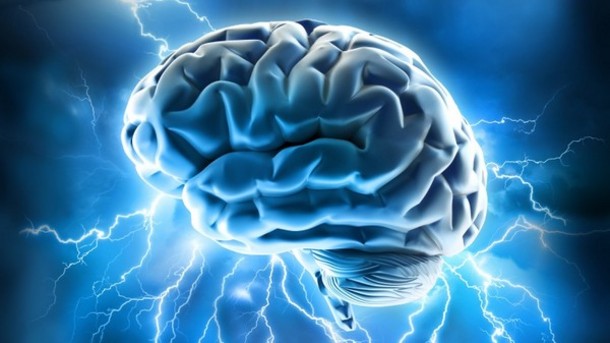You have more than likely heard of the element magnesium, but what does it have to do with nootropics? Magnesium L-Threonate is a new form of this element, which is derived from L-Threonic acid. When we consume magnesium, it is typically within our natural diet. Most commonly found in green vegetables and nuts, it’s important that you obtain enough.
While focusing on the benefits of magnesium, a more bio-available form of this nutrient was created. At MIT (Massachusetts Institute of Technology), this dietary supplement was developed in order to boost cognition. More specifically, this supplement was created for its ability to enhance learning and memory.
[sc:Magnesium-Threonate ]
What Exactly Is Magnesium?
As you are probably already aware, magnesium is a chemical element, as well as an alkaline earth metal. It is essential to all living things, as it is found in every cell within the human body. Not only does it make up 13% of the world’s mass, but it is the eleventh most abundant element.
Many would not think of magnesium as a cognitive enhancer. As mentioned, this link was discovered by scientists at MIT. It is now being used for its memory boosting properties, it’s ability to improve one’s learning ability, and its ability to improve brain plasticity.
Although magnesium is so important, up to 75% of Americans are simply not consuming enough. Research has been investigating the effects of Magnesium L-Threonate, due to its positive effects. In multiple studies, Magnesium L-Threonate was shown to reduce learned helpfulness (linked to depression), reduce cognitive deficits in mice with Alzheimer’s, and enhance fear extinction (which could be beneficial for symptoms of PTSD).
The Effects of Magnesium L-Threonate
Naturally, the human body depends on magnesium in order to maintain various functions. On average, the human body will contain approximately 25 grams of magnesium. Our bodies use this mineral in order to form bones, while enhancing nerve and muscle functioning. Focusing on our nervous system, magnesium also helps increase glucose metabolism and energy.
While studying this supplement at MIT, it’s been found that it increases both the activity and plasticity of our brains’ synapses. Due to these effects, neurons are able to communicate much more effectively. This was especially seen within the hippocampus, which is an area of the brain that’s responsible for memory. It’s believed that this effect is due to increasing cerebrospinal fluid within the brain.
What Benefits Are Associated with Magnesium L-Threonate?
As mentioned, Magnesium L-Threonate, improves synaptic activity. Due to this increased activity, users experience positive effects on various types of memory. While focusing on older subjects specifically, memory recall improved.
This is highly encouraging, as this supplement may aid in slowing down the effects of age-related memory decline. As our neural tissues age, less growth is observed. This also leads to less flexibility, promoting memory loss. Age-related decline, will also hinder one’s ability to learn and create new neural pathways.
For those that experience chronic neuropathic pain, this supplement can help relieve one’s discomfort. With that being said, there has been some discussion based on Magnesium L-Threonate vs. Magnesium Sulfate. Both of these compounds tend to improve memory, however, Magnesium L-Threonate tends to be safer.
The benefits that are experienced in relation to memory, are independent of the benefits which magnesium provides. Standard magnesium, helps to improve the strength of your bones, improve nerve functioning, while boosting mental energy.
When people are deficient in magnesium, they tend to experience an irregular heartbeat. By taking this supplement, this issue can be alleviated. Due to possible deficiencies, magnesium supplements are also used to promote better nerve function. This mineral acts as a natural muscle relaxant, allowing your body and mind to reach a calming state. This has been shown as an effective aid regarding both insomnia and restless leg syndrome.
What Are the Potential Side-Effects?
If you take too much magnesium, this could lead to potentially serious side-effects. For some users, taking very large doses, can lead to low blood pressure, severe brain fog, and an irregular heartbeat. In extreme, rare cases, overdoses can result in death.
If you have issues with your kidneys, then magnesium supplements should be avoided. This of course also relates to anyone that is taking kidney-related medication. When you add more magnesium to your routine, it can be become overwhelming for your kidneys.
The same is true for anyone that has a heart condition, as irregular heart beats are a possibility. At this point in time, there has been limited research conducted on Magnesium L-Threonate. However, side-effects will be similar to those that are experienced when taking Magnesium Sulfate.
Recommended Dosage
The standard dose for an adult, is generally between 200-400 mg. On average, males typically take 400 mg daily, while women take around 300 mg. When purchasing commercial Magnesium L-Threonate, you can find doses as large as 2000 mg per one single serving.
However, when taking a dose this size, it’s important to note that it will equate to approximately 140 mg of elemental magnesium. While taking magnesium supplements, many users will stack with calcium. Typically, this stack will be 1 part magnesium: 3 parts calcium.
If you’re looking to take Magnesium L-Threonate for its cognitive benefits, then it’s recommended that you stack with Oxiracetam. This racetam, inhibits the antagonism of NMDA receptors. Due to these effects, users can experience even greater plasticity in the brain.
Magnesium L-Threonate tends to have better absorption rates, producing more intense cognitive effects. As more research develops, Magnesium L-Threonate could eventually become the most common and most preferred method for consuming magnesium.
